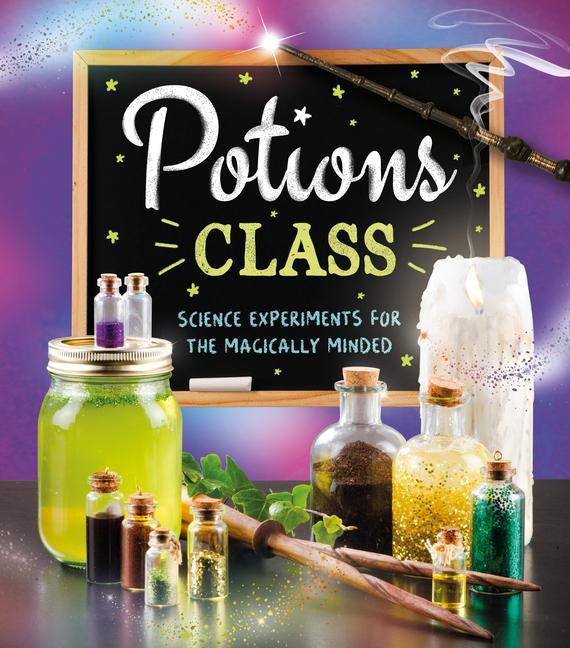Potions Class : Science Experiments For The Magically Minded by Eddie Robson

The ideal present for young enthusiasts of Harry Potter and guardians who are eagerly anticipating their invitation to Hogwarts. Are you able to concoct a formula to manipulate the climate or cast a charm to enchant a werewolf? In the Potions Class, kids will uncover the enchantment of science, free from any overpowering potions instructors watching over them! Budding scholars can test and discover various scientific principles, such as chemical reactions, non-Newtonian fluids, and more, while also engaging in spellbinding experiments. Every endeavor is presented in a straightforward manner, accompanied by descriptive pictures that ensure each activity is simple to comprehend and follow.
The LSD Revolution: From Scientific Discovery to Cultural Phenomenon
There is a fascinating possibility that the ability to have a psychedelic experience is innate in humans. Our brains contain compounds that are similar to the psychedelic compounds found in plants. These compounds are chemically related to serotonin, a neurotransmitter that plays a role in mood regulation. This discovery was made by Albert Hofmann, a chemist working for the Sandoz pharmaceutical company in the 1940s.
Hofmann accidentally ingested a small dose of lysergic acid diethylamide (LSD-25), a substance he had synthesized. This accidental “trip” opened his mind to the incredible potential of understanding the human mind and consciousness. Hofmann believed that LSD could help us see the world in a different, more profound way.
Research on LSD’s effects began to take place in various countries, including Canada, the United States, England, and Czechoslovakia. Researchers and psychiatrists were intrigued by its potential therapeutic uses, particularly in treating mental illnesses such as alcoholism and schizophrenia.
It was observed that LSD could lead to powerful and transformative experiences. People described seeing the world in a new light, with heightened awareness of colors, textures, and emotions. Some likened it to being reborn or experiencing a spiritual awakening.
However, as LSD gained popularity, it also became associated with the counterculture and societal unrest of the 1960s. The United States and other countries banned the substance, making it illegal. This crackdown on LSD research limited scientists’ ability to study its potential benefits, while its illicit use continued on the black market.
Yet, the interest in altered states of consciousness remained. Researchers explored other means of inducing non-ordinary experiences, such as fasting, meditation, breathwork, and shamanic practices.
Despite the controversy surrounding LSD, some advocates believe that when used in a controlled and intentional way, it can offer valuable insights and transformative experiences. They argue that proper set and setting, as well as the guidance of experienced facilitators, are crucial for maximizing the potential benefits of psychedelic substances.
While the future of psychedelic research remains uncertain, there is growing recognition of their potential therapeutic applications, particularly in the field of mental health. The discussion surrounding the responsible and regulated use of psychedelics continues, with some advocating for their integration into spiritual and healing practices.
Ultimately, the decision to explore psychedelics is a personal one, and individuals should approach it with caution, respect, and a deep understanding of the risks involved. The journey towards expanded consciousness is unique for each individual, and it is up to us to determine if and how psychedelics play a role in that journey.







Leave a Reply